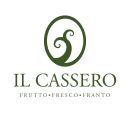The olive oil (it would be good if we omitted the word ‘extra-virgin’ since it is actually its natural feature) is omnipresent in any Italian kitchen. Cooked, fried and raw. From pasta to cakes. In November on sliced oranges from a small tree outside our house, with honey or, if possible, with white truffle. In spring and summer, spaghetti with wild herbs from the fields (fennel, marigold, wild mint, thyme, asparagus). In September with Sorana beans which are perhaps one of the best “gauges” when eaten hot to smell the oil and check its quality.
The oil is stored in steel containers at a controlled temperature without coming into contact with oxygen and is shipped in heavy dark green bottles for a total protection from UV rays.
“I have spent most part of my teenage years in this estate, with my family which used to gather at the weekend, observing and helping out.
This is how I learned from my parents and nature to give value to things and to work in order to achieve my goals.
My family and I dedicate ourselves to olive trees throughout the year, because there is always something to do, and we give our leisure time for this still today.
We try to exploit the days as much as we can in order to keep the vegetation under control which requires a lot of work throughout the year due to its particular vigour. It is important to stick to the deadlines for pruning, cutting, milling, manuring, cutting the wood, stimulating the shooting of the olive trees in spring and getting to pick the olives in October. Everything must be done at the right time, without stealing any time to the following activity.
Therefore early rising, big breakfast and off to the fields, which is beautiful in the spring, and regenerating in winter in the cold mornings with a bright blue sky. The cold weather of a few years ago during the harvesting of the olives is a very vivid memory.”
A traditional dish of this part of Tuscany
There are many dishes, with meat base, tomato sauce, bread, and red wine.
Pasta with meat sauce (beef) is a traditional one. Everyone makes it in one’s own way, but don’t call it ‘ragù’… rather ‘sugo di carne’!
Steak grilled on olive wood. Rare, seasoned only after being cooked, just with salt and a generous drizzle of oil.
“Food is the core of our wellbeing; in our family we like eating: we eat a lot and speak a lot about what we eat. We prefer simple food, seasonal food, we like following the pace of nature, buying directly from the producer and cooking what is available at the time of cooking, adapting traditional recipes to what the soil offers. Why? Simply because it is easier, more pleasant and healthy.”
What does producing responsibly mean?
It means not causing any damage to other people and to the environment and producing what you claim.
Writing clear labels, not just abiding by the law, is an important service for consumers.
“We aim at offering an authentic product, obtained from a spontaneous vegetation, that the hand of man should only preserve without any artificial addition.
Our goal is to help you find these characteristics in the taste of oil and read about them on the label.”




